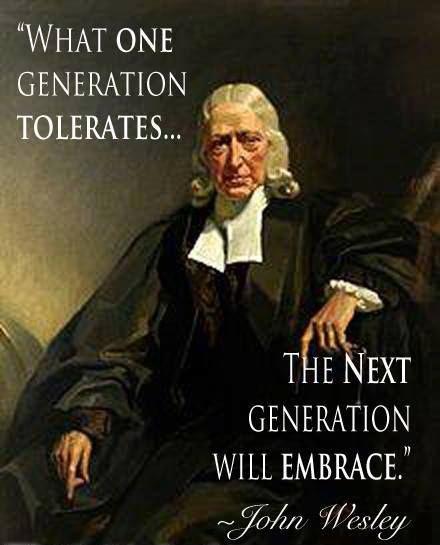What one generation tolerates, the next generation will embrace

What one generation tolerates, the next generation will embrace
John Wesley, the founder of the Methodist movement, is a prime example of how the saying "what one generation tolerates, the next generation will embrace" can be applied. Wesley was born in 1703 in England and grew up in a time when the Church of England was the dominant religious institution. However, Wesley was dissatisfied with the state of the church and sought to bring about reform.Wesley's teachings and practices were considered radical and controversial by many in his time. He preached about the importance of personal holiness, social justice, and the need for a personal relationship with God. These ideas were not widely accepted by the established church, but Wesley persisted in spreading his message.
Despite facing opposition and criticism, Wesley's teachings resonated with many people, particularly the younger generation. His emphasis on personal piety and social activism appealed to those who were disillusioned with the traditional church hierarchy. As a result, Wesley's movement gained momentum and attracted a large following.
Over time, the Methodist movement grew into a separate denomination with its own distinct beliefs and practices. What was once considered radical and controversial became mainstream and accepted by the next generation of Methodists. The ideas that Wesley had championed were now embraced by a new generation of believers who saw them as essential to their faith.
This phenomenon can be seen as a manifestation of the saying "what one generation tolerates, the next generation will embrace." The ideas and practices that Wesley introduced were initially met with resistance, but over time they became ingrained in the fabric of the Methodist tradition. The next generation of Methodists not only accepted these ideas but also built upon them, further shaping the identity of the denomination.












 Friendship Quotes
Friendship Quotes Love Quotes
Love Quotes Life Quotes
Life Quotes Funny Quotes
Funny Quotes Motivational Quotes
Motivational Quotes Inspirational Quotes
Inspirational Quotes